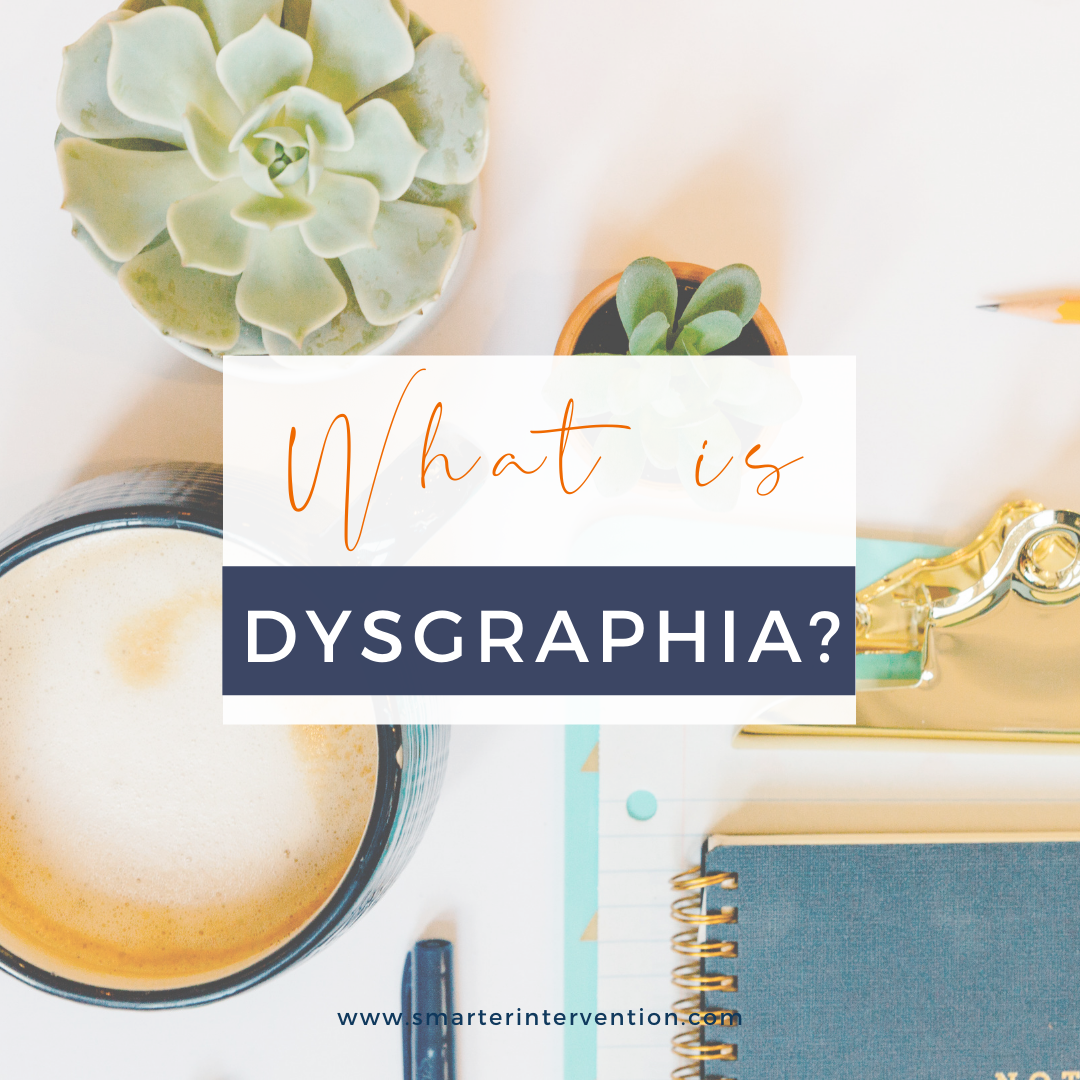Science-based literacy resources and articles
for families, educators and schools
Search by Category:
Categories
- Advocacy
- Authentic Literature
- Business
- Classroom Strategies
- Comprehension
- Data Tracking
- Differentiation
- Dyslexia
- Evaluation and Assessment
- Executive Functioning
- Games & Activities
- Helping My Child At Home
- How To
- IEP/504 Plan
- Lesson Planning
- Math
- Online Intervention
- Organization
- Parents
- Phonics
- Phonological Awareness
- Reading Comprehension
- Reading Fluency
- Research
- SLP
- Spelling
- Vocabulary
- Writing
What is Dysgraphia?
Dysgraphia is another term that is used synonymously with Disorder of Written Expression.
Basically, it can be used to describe a student or adult who struggles producing written content for a number of specific reasons.
When we consider dysgraphia, we have to think about all the requirements of writing. Writing is an incredibly complex task that requires multiple connections in the brain to come together quickly.
Dyslexia Symptoms Checklist
Wondering if your child or student may have dyslexia? This post walks you through common dyslexia symptoms across age groups, explains why they matter, and provides a free printable checklist to help you track what you’re seeing. Learn how to use observation data, recognize red flags, and take confident next steps toward evaluation or support.
Suspect Dyslexia? The Time to Talk to Parents is Now!
Prepare your students for summer with strategies to combat the dreaded "summer slide" and prevent learning loss. Learn how to identify signs of dyslexia and guide families toward appropriate testing and intervention to ensure a successful new school year.
Is it dyslexia or a vision issue?
Dyslexia is a brain-based learning difference. It is a language processing disorder and not a vision or eye problem. In contrast to dyslexia specialists and most pediatricians, some optometrists may try to convince you that your child’s reading difficulties are due to vision problems and may recommend vision therapy or glasses. Some well-intentioned (but misinformed) therapists or teachers may even suggest colored overlays to “fix” the problem.
Signs to Watch For if You are Concerned about Dyslexia
Noticing reading or spelling struggles in a child? Learn the most common signs of dyslexia at different ages, what they may indicate, and what to do next. This guide helps parents and teachers recognize patterns early and seek appropriate support, with a free checklist included.






